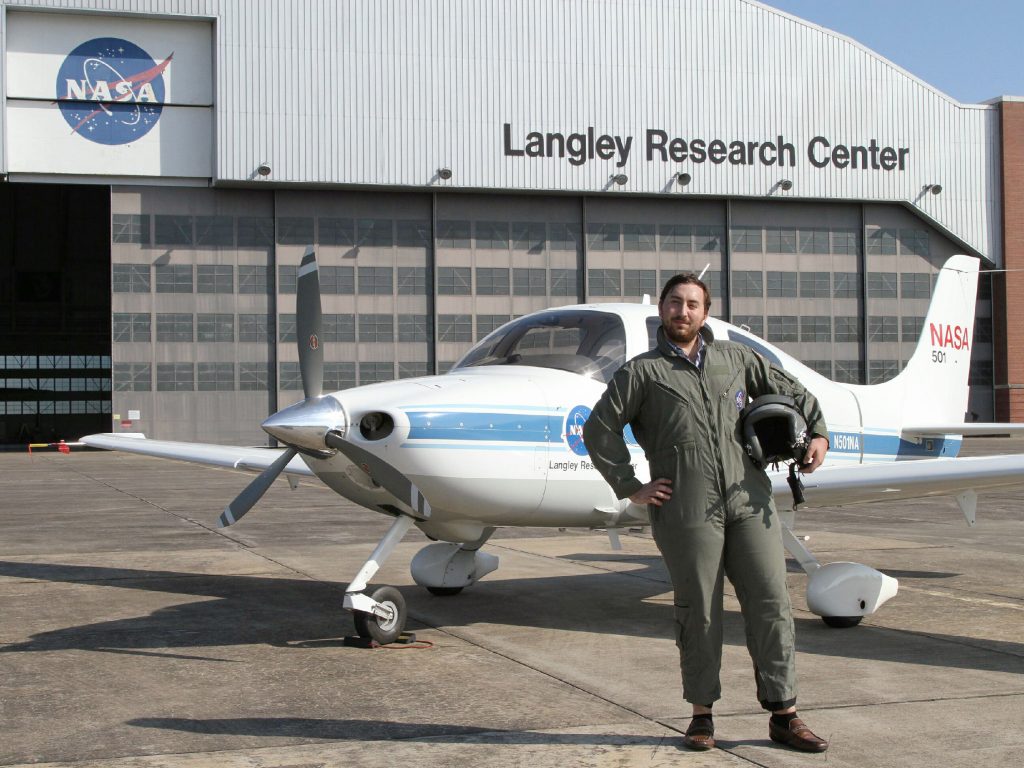
It may seem unlikely for an employee of NASA to be the same person running a Facebook page dedicated to memes. However, Erik Langert, who graduated from Binghamton University last year and is now pursuing a master’s degree in computer science, is doing just that.
After finishing his master’s in May, Langert will begin work at NASA full time. But while he has been successful in finding employment so quickly, getting into BU was not so simple. Langert was admitted as a spring admit his freshman year, so he lived in Downtown Binghamton and attended Broome Community College for a semester before beginning at the University. Langert said this experience gave him a different outlook than most freshmen.
“Going up [to Binghamton] and being kind of thrown into all of these people’s lives who are much less, I don’t like using the word but, privileged, than I was, having to ride the city bus everyday, really felt like a very humbling experience,” Langert said. “It shows that you’re gonna have to work to accomplish things, you can’t just skate through.”
While working toward two undergraduate degrees from BU in computer science and mathematics, Langert held two different internship positions at two different NASA locations. The summer after his junior year, he interned at NASA Langley Research Center in Hampton, Virginia working on “computer-related stuff” with BU alumnus James Warner, ’08. The next summer, Langert scored another internship with NASA at the Jet Propulsion Laboratory in Pasadena, California.
In addition to gaining experience through internships, Langert was also involved with HackBU as an undergraduate. This event, a 350-student hackathon hosted by the University, seeks to foster problem-solving skills and the innovative use of technology. Langert acted as the director of the program for the last two years, organizing and hosting the annual event, coordinating travel to other schools for their hackathons and holding weekly coding workshops.
In addition to his academic and professional career, Langert runs a Facebook page some BU students may be familiar with, titled “Premier Public Memes.” Langert started the page with a friend, Jack Fischer, ’17, and the page now has nearly 950 likes. The page showcases memes depicting struggles or inside jokes pertaining to life as a student at BU. Langert, who spends his days doing very technical work, says he uses the page to “exercise other parts of [his] mind.”
“Basically, we consider ourselves to be ‘aspiring amateur meme connoisseurs,’” Langert said. “We’re constantly sharing memes and every once in a while, something will happen Binghamton-related and one of us will make a meme and send it to each other … so, we decided to try and basically corner a section of the Binghamton social media humor market and created ‘Premier Public Memes.’”
Beyond this creative outlet, Langert is now working on a project in collaboration with the NASA Jet Propulsion Laboratory, which he will continue to build on once he begins at NASA full time. The project is focused on the rovers on Mars and the attempt to equip these rovers so that everything is done through software or hardware, without human control.
“There’s a feud between the engineers and the scientists,” Langert said. “So, the scientists are there to learn more about Mars and the engineers are there to make sure the scientists can accomplish their mission in the most functional and efficient way possible. A lot of times, they’ll look around and see a bunch of pictures and scientists will say, ‘Let’s go investigate that, it looks neat,’ and the engineers will say, ‘No, we have to accomplish this goal, we have to go forward.’”
Langert’s project is part of this debate.
“[The rovers] take a picture of, say, the terrain in front of them, they’ll be able to say, ‘OK this is sand, this is a rock, we can or cannot go over this.’” he said. “The technique to do that is this thing called deep learning, or machine learning. So, the project is, basically, attempting to implement these sophisticated, deep-learning algorithms in these very harsh coding standards … [if it’s] successful, it could be used in future missions that want to employ this type of machine learning.”
Though Langert acquired many practical skills in the classroom, he recognizes that the real world has just as much to offer.
“I’m a firm believer in ‘don’t let your classes get in the way of your education,’ but, when you’re in, I’d say, most STEM fields, specifically, you can only do so much while avoiding your classes,” Langert said. “Without a doubt, Binghamton taught me how to become a programmer, how to solve these problems … without a doubt, they’ve given me the technical skills to do it.”


